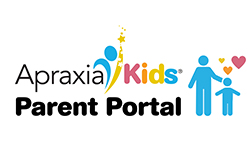After receiving a diagnosis of childhood apraxia of speech (CAS), parents have so many questions and worries about what the future will hold for their child. Getting a picture of that future is challenging at best, as there is no longitudinal research to give clear answers for any particular child and every child’s journey with apraxia is different.
We know that kids who have had apraxia of speech as youngsters can grow into young adults who graduate from high school, find jobs, graduate from college, develop committed relationships, and have children. We know that many children with a history of CAS who get appropriate help can learn to speak well, and some may learn to speak so well that no one would ever guess that at one time they had a severe speech disorder. Also, we know that children with apraxia of speech can have a variety of other developmental delays or concerns or other comorbid diagnoses, in addition to apraxia of speech, so they may still continue other therapies outside of speech.
Experienced speech-language pathologists suggest that long-term prognosis for clear speech is most favorable for children that have fewer and less severe co-occurring diagnoses. Children with fewer or milder co-occurring diagnoses tend to progress to have typical sounding speech when they have been given appropriate and sufficient speech therapy, even if their speech apraxia was more severe in the beginning. However, even children with significant co-occurring diagnoses do make positive gains in their speech and communication with appropriate intervention. Obtaining appropriate speech therapy early on also positively impacts the progress children make in therapy. Finally, motivation of the child and family often contribute in immeasurable ways to long-term outcomes. All of these factors cause long-term outcomes that vary child to child and a therapist cannot predict for any child what the final outcome will be based on what they see in an evaluation.
Most importantly, just because your child may not be able to speak yet, does not mean that they can’t communicate. Your apraxia star may be trying to communicate with you in other ways so discover that with them. Seek out Augmentative and Alternative Communication (AAC) options like sign language, picture boards, or tablets. AAC will be a great tool to help your star communicate while they’re still working hard to find their voice.
By Laura Moorer
October 2021
